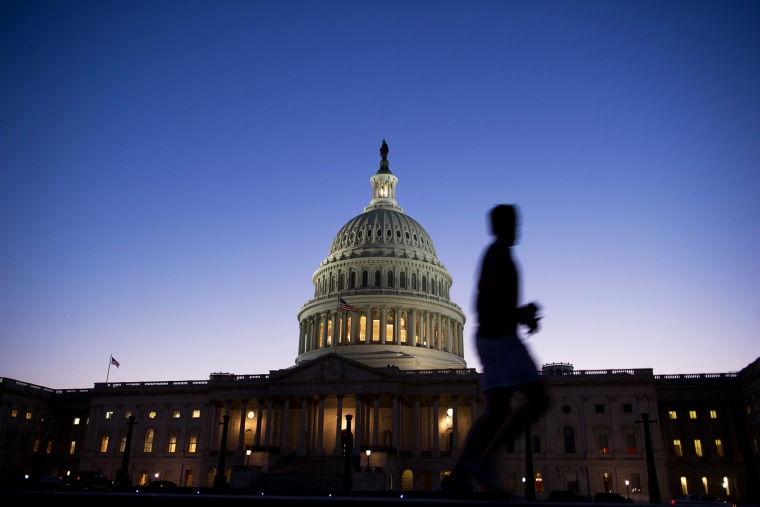In 1981, the newly inaugurated Reagan administration presented Congress with a budget plan filled with an odd little trick that came to be known as the "magic asterisk." The technique, as Michael Kinsley
explained a few decades ago, "consisted of hiding phony cuts in the small print of various budget documents in order to exaggerate the Administration's success in spending reduction and to minimize the projected deficit."
In effect, the "magic asterisk" represented illusory spending cuts that the Reagan White House promised to figure out later. The new Republican administration didn't want to come right out and say, "We can't figure out how to make our numbers add up," so they used the asterisks as placeholders.
At the time, some Republicans in Congress weren't quite sold on the idea, so Reagan's aides asked allies in the media to attack them. It worked -- GOP lawmakers "
beat a tactical retreat" and gave in to Reagan's bogus budget games. The result was some of the largest deficits in American history, even after Reagan had promised the country the opposite.
A generation later, congressional Republicans aren't questioning the trick; they're
embracing it. House Minority Whip Steny Hoyer (D-Md.) took a look at the new House GOP budget blueprint and told the
Washington Post, "
They have a magic asterisk."
Hoyer was apparently not referring to an actual asterisk, but to a row of figures with the innocuous label "Other Mandatory" in one of several tables at the back of the document. The numbers show that Republicans are planning to save $1.1 trillion over 10 years by reducing outlays for mandatory spending other than on health care and Social Security, a drastic reduction for that category as compared to current policy. It was not immediately clear where the savings would come from, but they're necessary in order for the budget to balance within a decade, as Rep. Tom Price (R-Ga.), the chairman of the House Budget Committee, said it would.
House Republicans started with a vision: increase defense spending while balancing the budget within 10 years, without raising any taxes on anyone. The problem, as Reagan and his aides discovered in the 1980s, is that this really can't be done without "magic."
Part of the problem, of course, is that the objective itself is ridiculous -- there's
no policy reason to pursue a balanced budget in 10 years and plenty of substantive reasons not to. GOP lawmakers simply think it sounds nice, so they've made it a priority.
Just as important is that, in pursuit of the pointless goal, Republican lawmakers intend to
shred the nation's safety net, stripping millions of health care benefits, food stamps, and other social-insurance programs intended to keep working families' heads above water.
But as House Budget Committee Chairman Tom Price (R-Ga.) and his cohorts discovered, even these indefensible cuts won't help the GOP's numbers add up, so they're forced to use asterisks -- or in this case, an "Other Mandatory" budget category that represents more cuts that may or may not exist at some point in the future.
Bob Greenstein, president of the Center on Budget and Policy Priorities, told the Post, "We were concerned that there would be a magic asterisk in the budget. It turns out to be an even bigger magic asterisk than we expected."
The sad part of all of this is that Republicans don't seem to fully understand what they've done. In fact, the budget plan itself
boasts in the introduction, "We do not rely on gimmicks or creative accounting tricks to balance our budget," despite the fact that reality points in the exact opposite direction.
Jonathan Weisman of the New York Times asked Price if he would detail the $1 trillion in mandatory cuts that the budget doesn't identify. "Take a peek at 'A Balanced Budget for a Stronger America,' " Price replied, holding up the budget again for the cameras. "I'm looking at it," Weisman said. "It doesn't specify." It didn't -- and that's the sort of trick Republicans can no longer get away with now that they're in charge.
If congressional Republicans are trying to prove they're not a responsible governing party, they're doing a terrific job.
